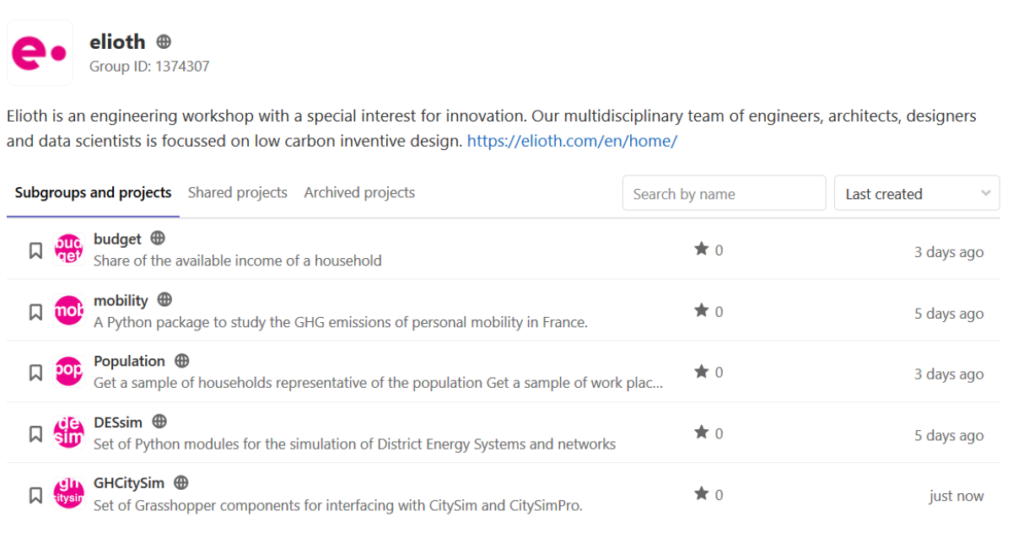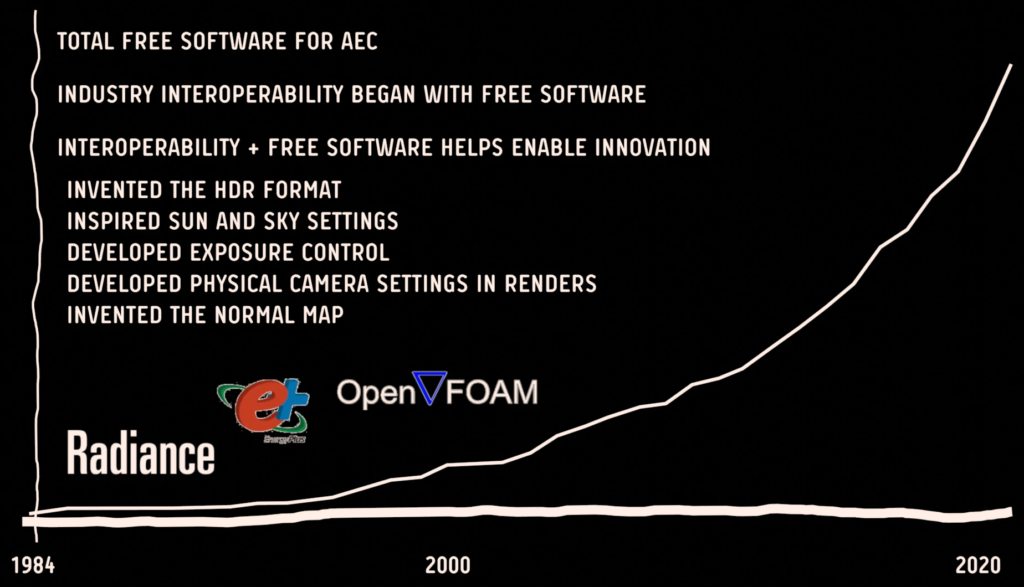Elioth goes opensource
Article published on October 28, 2020
Open source is the idea that code you use in software must be both accessible and editable, the opposite of what is sometimes called a black box.
At Elioth, we believe that open source is the future of engineering and we now make a large part of our tools accessible to all.

Too often we hear, “the french RT2012 is incomprehensible” or “with this software I have this value and with this one another“. The difficulty in answering these statements lies in the black box used. If the physics of the building is clear, its application by specific non-open source software is detrimental to its understanding. It is high time to stop!
A first “almost” counter-example is nevertheless the french RT2012. More than a thousand pages to explain how the calculation engine works in detail (if you’re looking for default values in your models, it’s this way). This is obviously a very good first step, the minimum, but let’s be honest, if we had the calculation engine accessible in open source, it would be ideal, we could make internal sensitivity analyses, study particular cases without going through a proprietary interface or tool. Anyone (really) could look at the code and test it.
What about open source?
The advantage of open source is therefore, to be able to combine knowledge and to allow an improvement of methods rather than having the same work carried out in parallel by different actors. It is a process of continuous improvement, transparent and open, left to the users’ choices and sometimes even to their votes. The perfect example is energy+, which saw its use increase tenfold when it was switched to Github, an open source software platform. The other example is Radiance which has seen its code optimised and debugged. Open source is also a vector of innovation since it can bring together different ideas. The opensource is not directly related to a free tool since an opensource software can sometimes be bought (if you are interested, more explanations here).
At a time when the climate emergency requires everyone’s contribution, open source in the world of engineers is a necessary, if not mandatory, process. Following the example of the IPCC, tools and methods must be shared so that improvement comes from everyone. It is almost finally a postulate of the vision of neutrality that we wish to achieve.
For Elioth, it also means that we do not sell a tool nor the use of a tool but that our added value lies in the expertise around the physics of tools. This is a natural change in our role, knowing that our ultimate goal is to have the greatest impact possible and if the tools allow it, it’s a win-win situation.
You can go even more in detail about AEC free software with this great 20min video.

So far, we have published :
3 packages based on usage, to study the carbon impact of people :
- https://gitlab.com/elioth/budget
- https://gitlab.com/elioth/mobility
- https://gitlab.com/elioth/population
A script on Grasshopper for urban heat island studies :
Python translation of the dynamic LCA calculation of a CIRAIG tool:
And a tool that we will talk about a bit further on about the calculation of heating networks:
We should have other tools in a few more months, by the time we clean up and document the codes.
Many thanks to Felix, Giuseppe and Louise for their involvement.

Guillaume Meunier
Director - Head of the environment division
En savoir plus sur

Un collectif unique d’ingénieurs, designers, inventeurs
Nous sommes un atelier d’ingénierie avec un grain pour l’innovation. Notre équipe multidisciplinaire composée d’ingénieurs, d’architectes, de designers et de data scientists, intervient en consulting et en maîtrise d’œuvre d’innovation bas carbone.


